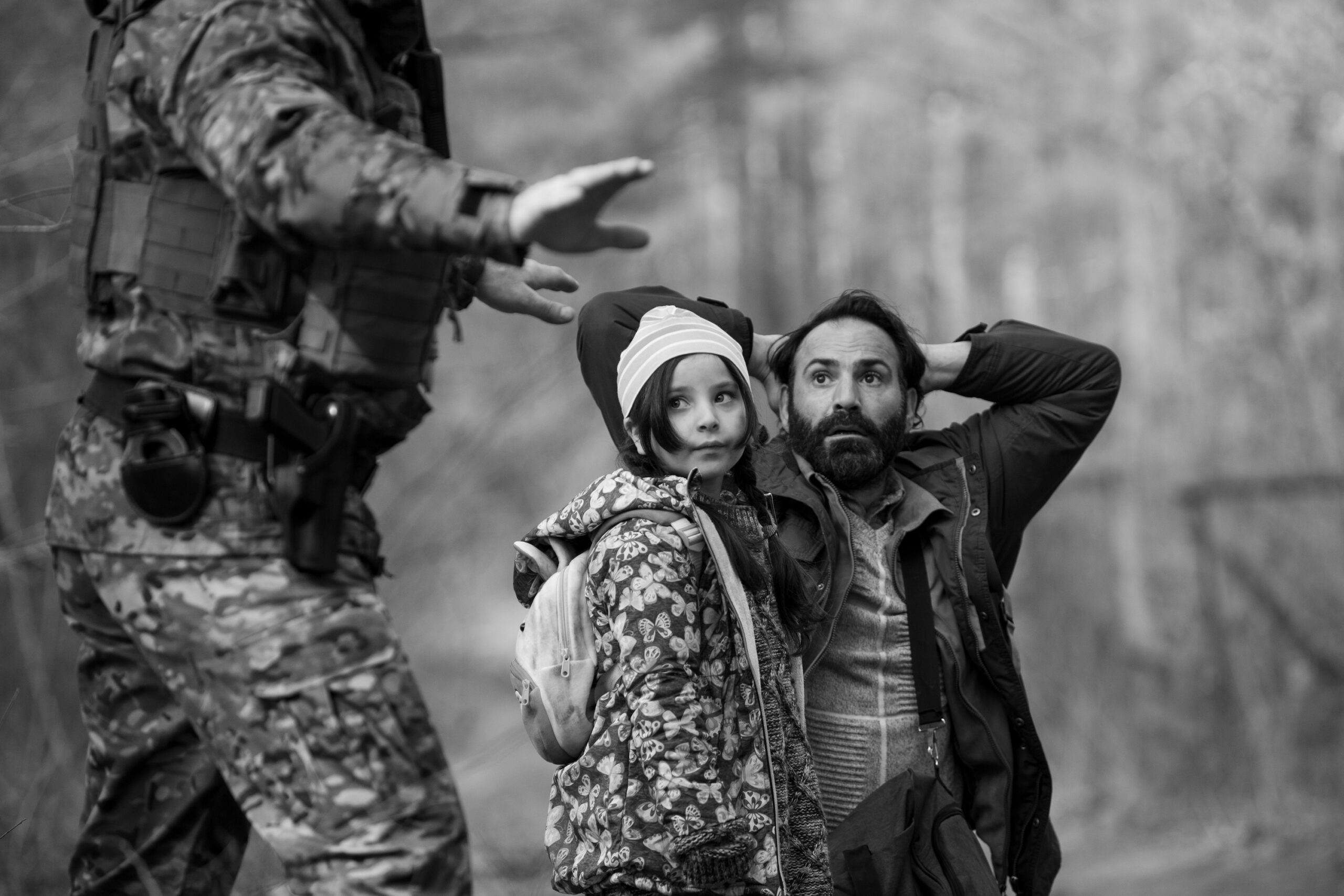Agnieszka Holland is one of Poland’s most distinguished directors with multiple Oscar nominations. Her most famous film is probably Europa Europa, set in WWII-era Poland. In it the protagonist is a young Jew who masquerades as a Nazi and joins the Hitler Youth in order to save his life. At its center is the question of identity and nationalism. Holland’s latest film Green Border continues that exploration. In it a group of Syrian refugees are thrown into a horrifying limbo as they attempt to enter Poland from Belarus, as a transit point to better lives, only to be sent back, beaten, tortured, robbed and treated like animals, and sent back and forth over and over.
The story is told from multiple perspectives: the refugees, a young Polish border guard, and a Polish psychologist-turned-activist who cannot stand by and watch what her country is doing. It is a harrowing experience told in a quasi-documentary style that is sometimes hard to watch, but ultimately too compelling to turn away from. The script is an amalgam of true events, told through a handful of fictional characters.
When we meet the Syrian family who are fleeing the civil war, they are on a plane coming into Belarus. A family member in Sweden assures them that once they are across the border in Poland, everything is set for the rest of their trip. They are traveling with an Afghani woman who is alone. And when everything goes bad her skill as a translator comes in handy.
The second perspective is from Julia (Maja Ostaszewska), a psychologist who lives very near the border and heads into the woods after hearing the cries of a young woman. She meets a group of activists who are defying the government to bring critical resources to the refugees and offers them her help and her house as a staging ground, and is soon running up against the ire of the Border Patrol.
The third thread is Jan (Tomasz Włosok), a young border guard with a heavily pregnant wife at home. Through him we are taken inside the culture of the Polish Border Guards, who have fun destroying the dreams and lives of the refugees, constantly finding ways to make their lives more hellish. There is definitely a whiff of Nazi in the depiction, which is probably pretty accurate. Jan isn’t all in though about what they are doing and his growing discomfort with his duties is painful.
The film cuts between these three stories, keeping you wondering how it can possibly end well for any of them. At the center of it all is the political game being played by the leaders of Belarus and Poland and as one of the refugees notes, they are all just a football in the evil game.
The film is 2 hours, 32 minutes long and I watched it in two sittings, not because it felt long, but because I felt wrung out. Fortunately is available now to stream, so you can take your time, too, if you feel the need. But watch it! It is timely and necessary.

